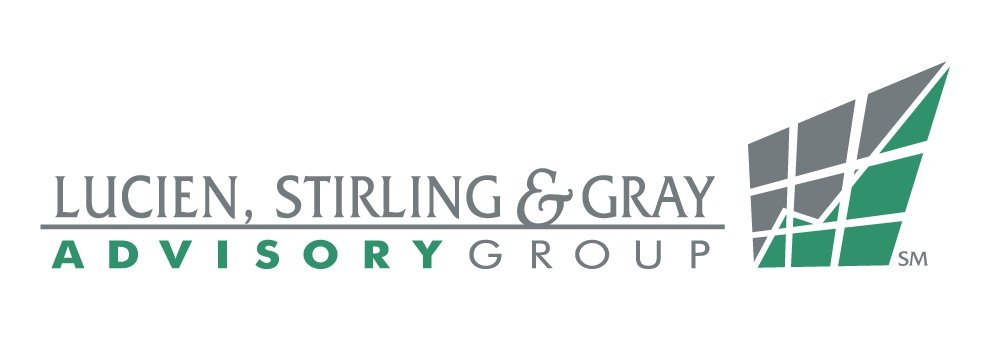How do you define "wealth"?
Cardinal in Winter
This is the 1st in a 3 article series written in 2011 by Thomas. Only the number of years mentioned in the first sentence has been updated.
by – Thomas Twombly
artist - Daisy Lopez
It’s a question I’ve spent 33 years asking people – in one-on-one meetings, in small groups, and in larger seminars. I’ve asked clients, colleagues, friends and business associates. I’m curious to hear people’s answers, because how they define “wealth”, individually and collectively, is one of the keys to helping them plan and invest effectively. It is directly tied to how our organization delivers “wealth management services” in a meaningful, valuable way.
What’s interesting about their responses is that rarely does someone’s primary answer center on money. “My family” or “the relationships I have with my kids” are common responses. “My health” or “the special friends I have in my life” are others. “My faith” or “the sense of deep satisfaction I get in building my business and serving others” are yet others I’ve heard.
When I layer probing questions such as, “How does money factor into your definition?” the subject of material wealth obviously arises. We live in a capitalist society, where our notions of success and personal accomplishment are frequently tied to our balance sheets. Money is clearly an important component of how we define wealth. Yet, it is interesting and telling that when the conversation does turn towards material success as a primary measure of wealth, it’s often accompanied by a sense of discomfort. I often hear statements like “but there’s so much more to it than that.”
This raises some interesting ideas, and points to some of the subtleties we encounter in helping clients to build and manage wealth on their terms. Here are some other questions to ponder. What is the difference between having material riches and being truly wealthy? Are lottery winners instantly “wealthy”, or is there something more to wealth than a big pile of cash? To be sure, many people see no difference, and would answer “yes” - a big pile of instant cash does make one wealthy. But our experience indicates that the people whom we most enjoy serving attribute deeper, more subjective, more personal qualities to the notion of true wealth. It is in addressing these qualities where we are able to differentiate ourselves as advisors, and where we help them align their material wealth-management activities with the other important aspects of leading lives of consequence.
Throughout history, and across cultures, elements of stewardship and philanthropy are clearly important to the concept of building true wealth. There is a shared belief that material success is an important component, but it requires careful shepherding. Miguel de Cervantes, the author of Don Quixote, said: “The gratification of wealth is not found in mere possession or in lavish expenditures, but in its wise application.” Ebenezer Scrooge, in Charles Dickens’ A Christmas Carol, is estranged from society and tormented by ghosts until he reaches an epiphany that fulfillment comes only in generosity and using his riches in service to others. Wealth, as opposed to riches, connotes a greater sense of purpose, continuity, and congruence between what you own and who you are; how you came by it, and how well you handle it; how it affects you, and to what extent it defines you; how you pass it on, and how well you prepare your successors to receive it.
So wealth is a multi-dimensional concept. Much like an iceberg, where only a small percentage is exposed above water, what one discovers about exploring personal definitions of wealth is that the largest and most meaningful dimensions are frequently deep beneath the surface. Those dimensions are less obvious, but no less important. In fact, they’re often much more important precisely because they are often overlooked, and because they are what provide ballast, stability, weight, and meaning to a long-term wealth-management plan.
Material wealth is the comparatively small part of the iceberg that catches one’s eye and attention. It’s the easiest part of your wealth to define and quantify. It’s the one thing brokers and steely-eyed hedge fund managers want to identify to decide whether or not you’re a “qualified investor.” It’s what is easiest to feel, touch, and see. It’s what you own, what you can sell to a stranger, what you can convert relatively quickly to cash. It’s what the banker asks for when you apply for a loan, what the insurance company asks for to decide how much coverage they’re going to sell you, or what the IRS wants to know when determining whether or not your estate is subject to taxes at your death.
It’s the shallowest dimension. Unfortunately, it’s also the dimension many financial service professionals hesitate to venture beyond.
Think about the last time you applied for a loan, or refinanced the note on your house. You had to list everything you owned, and assign a fair market value to it – property, business interests, investment accounts, retirement accounts, savings, antiques, jewelry and collectibles, etc. Then you had to subtract from that everything you owe – mortgage, car loans, consumer debt, business loans, outstanding taxes etc. There, staring you in the face was your “net worth.”
How did that feel? Was it an accurate measure of all that you are and all that you value? Did it leave you feeling satisfied, whole, and complete? Did you feel understood? Or were you left with a sense that you’d been reduced to a mere shell of your true self?
“Wait!” you wanted to say, “That isn’t the whole story, there’s so much more…”
There is. And that’s why it’s so important to go beneath the surface to explore what else is there.
Continued next month
Thomas Twombly
President

